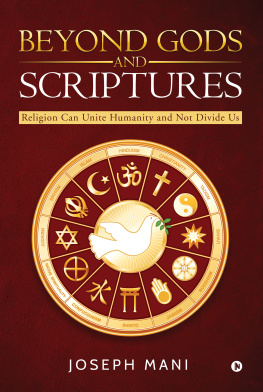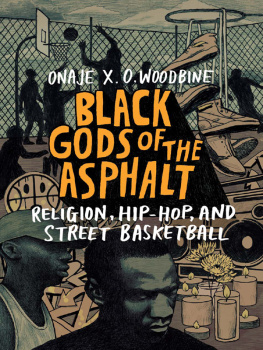ALL RIGHTS RESERVED.
T o my cousins, John Krzeminski, Jr. and Joey Deitch, Jr. and my friends, Lester Aaron Finuf and Sarah Gillie.
Preface
Taking a new step, uttering a new word, is what people fear most.
Fyodor Dostoyevsky
For most of my life, I believed that there was a god. He was not particularly in the front of my mind on a daily basis, but I thought that the fact that he existed was basically well-settled. I did not think that he was directly affecting my life or interfering in the world on my behalf, but I had a misty hunch that there was some cosmic plan of his design that I was acting out each and every day. I had deep respect for people who devoted their lives to their religions. I understood that the wrongs of the world would be corrected in some other place and time. I expected my deeds to be assessed for their merit, tallied, and revisited upon me in an ultimate judgment whenever it was that I closed my eyes for good. Now, I do none of these things, and I only vaguely remember the person who I have just described.
The cracks in religious thought began as I proceeded through higher education, a stage of intellectual disciplining that the staunchest religious believers correctly fear and attack to protect the integrity of their ethos. Before my higher schooling, I had never taken a class or met a person who had challenged religious thought, and even if I had had such an experience, I likely would not have been receptive to the stance. As a student majoring in mathematics who was also encountering a host of other ideas in his curriculum however, the poetic musings of religious thought had to give way to the crushing pressure of analysis and critical thinking, and I became a lapsed believer. I say lapsed because I had not yet done the work to squarely confront and discredit religious thought.
Instead, it beca me a quaint curiosity to me, a strange yet familiar stowaway in the cargo of my reasoning. For the next seven or eight years, I lingered in an uncomfortable place with respect to religious thought in that I could not see its realistic accuracy with respect to the world, but a part of me was afraid not to believe it. After acquiring a graduate degree and more years of emotional maturity, I figured it out, and I write this book to complete the circle. This book is a gift to my former self, a memento from the future of what I would have needed to solve the puzzles that once trapped me. If you feel similarly caught in the web of religious thought, I hope that it will serve the same purpose for you.
I have met several young people in various forums debating this topic who have asked me questions about how I have arrived at my conclusions regarding the existence of gods, how I have informed my family of those conclusions, what life means to me without a god, and countless others. These people have been a main inspiration for this work as they have brought home to me the urgency of what is at stake. I see the patterns of my life recur in theirs. I can tell that they have heard the grating screech of religions hull raking across the iceberg of science and logic, I recognize their alarm at seeing the often-profane behavior of those who are fervently religious, and I remember the secret horror and isolation of not understanding why anyone else seemed to sense the same.
T hese young individuals and their cleverness in the face of a world that is failing to prepare them to address these ideas have been another motivation for this work and have made me aware of the need to deliver a resource that can enable their safe passage through the morass of religious thought. If left to reconcile these ideas alone, perhaps many of them would have reached correct conclusions on the subject, but the problem is that time is a factor. When one abandons religious thought, that point becomes all too clear.
Personally, I did not expect my departure from religious thought to be a positive one, and I am convinced that many people feel similarly. The emotional relief that washed over me when I had completed my approach towards the conclusion that gods do not exist was a surprise, but it ought not to be. Many books about atheism concentrate their criticism on theisms intellectual failures, which are ample, but we will proceed beyond purely intellectual treatment of the topic and explore how it has adversely tampered with our emotional development as well.
Surely, the most decisive arguments against religious thought arise from its logical and evidentiary bankruptcy, but it also does not deserve to be able to claim the h igh ground on emotional matters either. Presently, many people who would not tolerate the practice of religion on its rational merits do so because they have come to view it as an institution that is good for ones emotions, and that is an unacceptable result, causing the emotional stagnation of countless people who engage it.
My goal in this book is to provide a complete refutation of religious thought and its associated conclusion of theism while simultaneously demonstrating the intellectual and emotional benefits of reason-based thinking and its associated conclusion of atheism. In Part One, we will discredit religious thought from the ground up by systematically attacking its terms and assumptions in order to collapse its conclusions. In Part Two, we will fill the void left both in our intellects and emotions after the discrediting of religious thought with consistent extensions implied by reason-based thinking.
We are destroying and then rebuilding; we are removing a faulty circuit and replacing it with a new, functional one. What we will discover as we proceed through the debate over the existence of gods is that both religious thought and reason-based thinking are nothing more than sets of assumptions about reality with associated methods of acquiring knowledge about it. As we will further discover, these sets of assumptions cannot tolerate each other, i.e., they are diametrically opposed and mutually exclusive.
At no poin t in this book do I reference the specific name of any religion, and the reason is that they are all the same when it comes to the minimum assumptions to which one must subscribe in order to participate. Their common characteristic is what I refer to as religious thought, which is any set of ideas or practices rooted in the religious assumptions that we will review in Chapter 2. That religions have generated quizzical oddities peculiar to the cultures in which they have developed is interesting from an anthropological standpoint but ultimately irrelevant for our discussion.
Regardless of the set of customs for any given religion, those quirks will not save any of them from an analysis that discredits their essential core, which will be where our pressure is applied. In this manner, the religious definitions and terminology employed in Part One will not engage the endless meanderings of any given religion and will instead capture the crux of religious thought, on which all religions are built. In other words, the form in which a culture has institutionalized religious thought is not at issue; the substance of its belief is what is at hand.
For the record, I do not particularly care to refer to myself as an atheist because that term merely represents my conclusion, not my analysis. I tolerate labeling myself as such only to demonstrate my opposition to religious thought for the benefit of fence-sitters who may have never met someone willing to engage the social taboo that protects religions from questioning. All I am is a person who consistently adheres to standards of analysis when assessing information that purports to establish knowledge about objective reality. Those standards of analysis have been derived from mathematical, scientific, and logical techniques that have yielded humanity unprecedented predictive capability in its surrounding environment, and there is no compelling reason to abandon them on the question of the existence of a god. Indeed, they are needed the most when the question at issue inflames ones emotions to distracting proportions.






